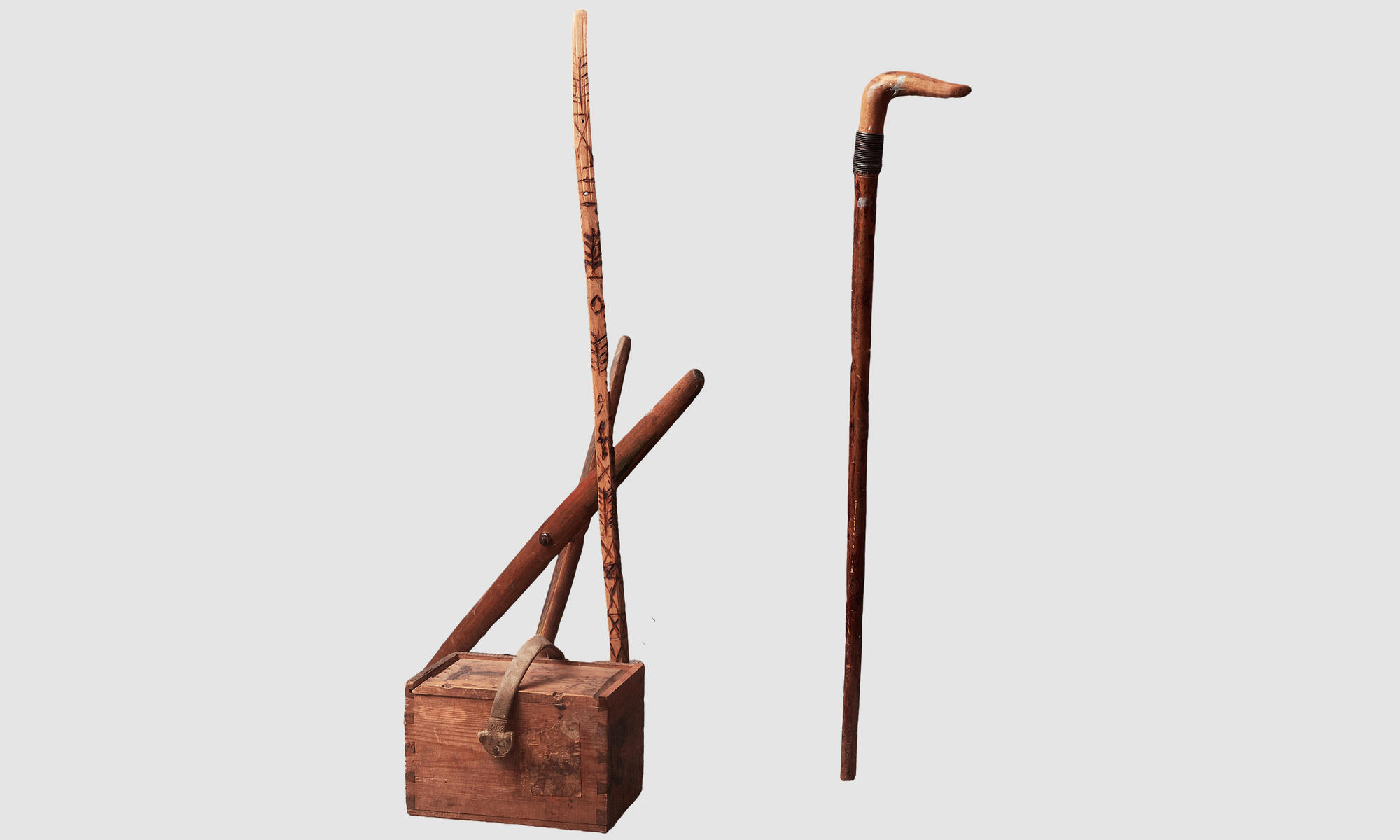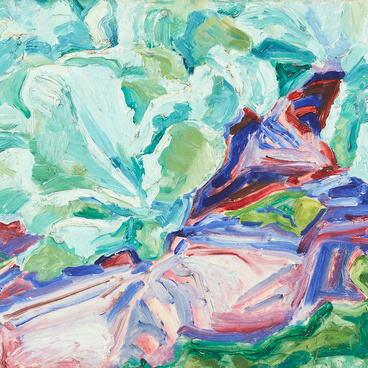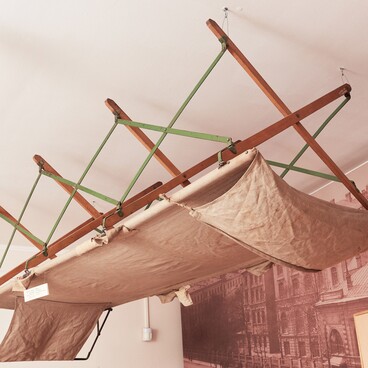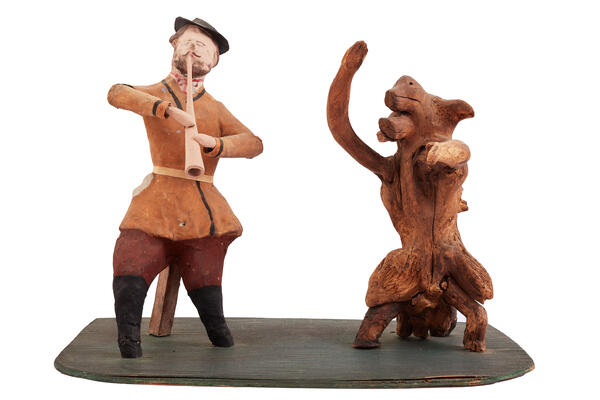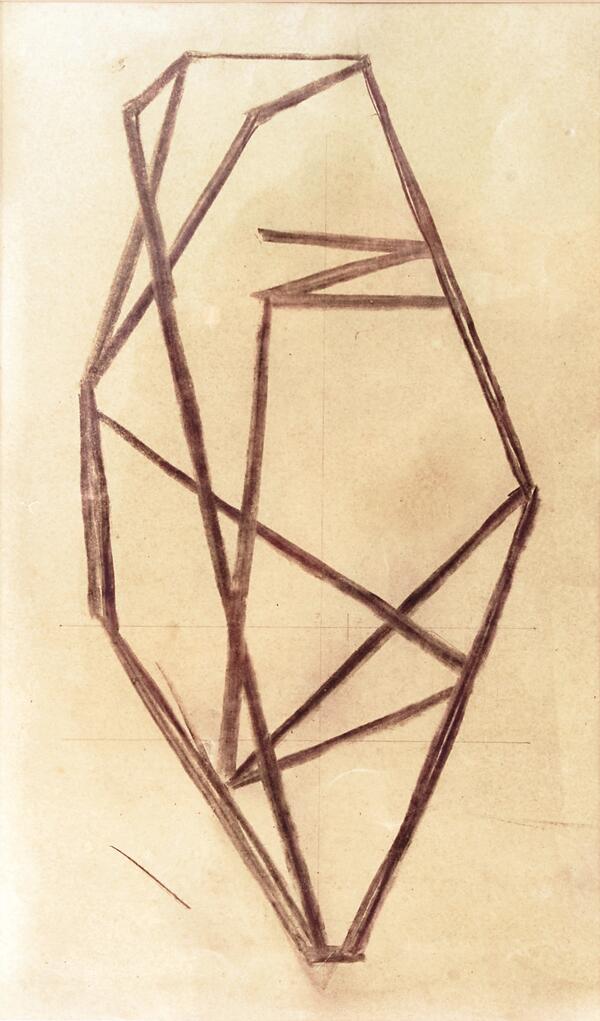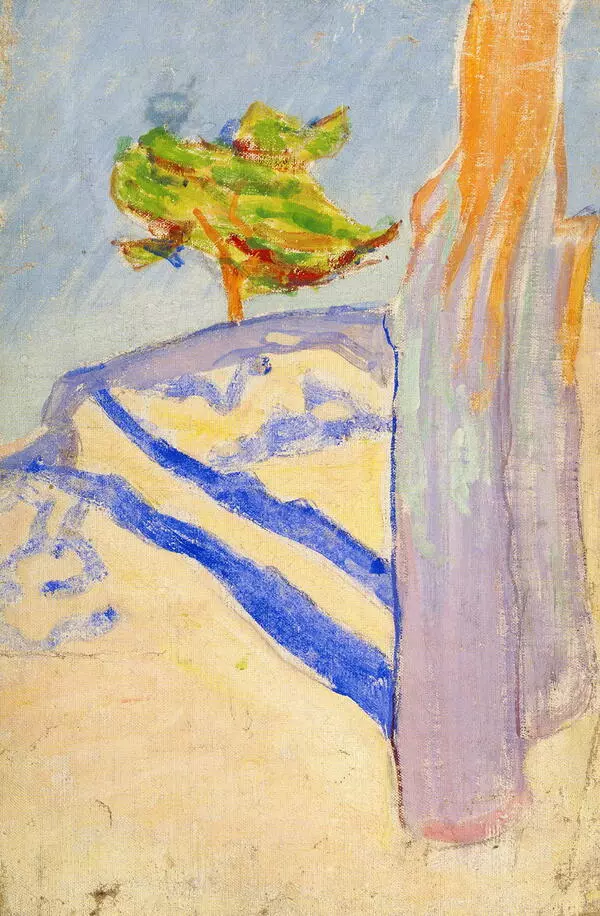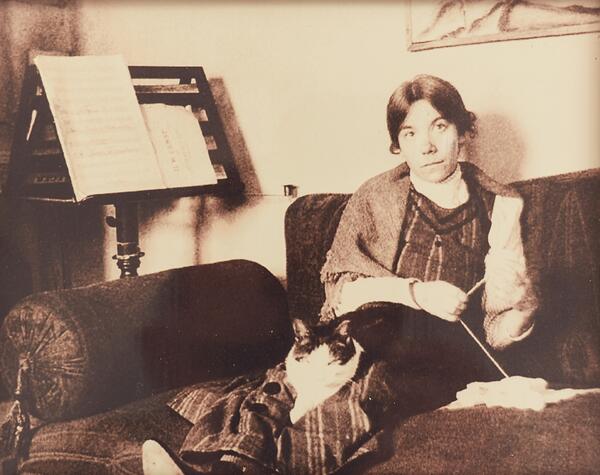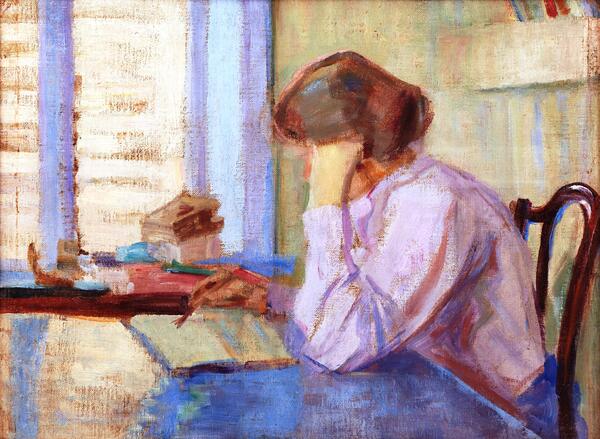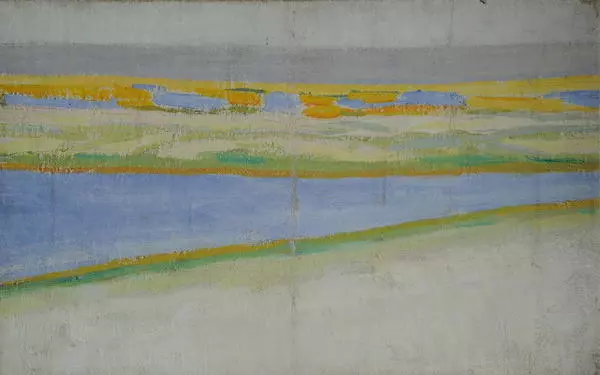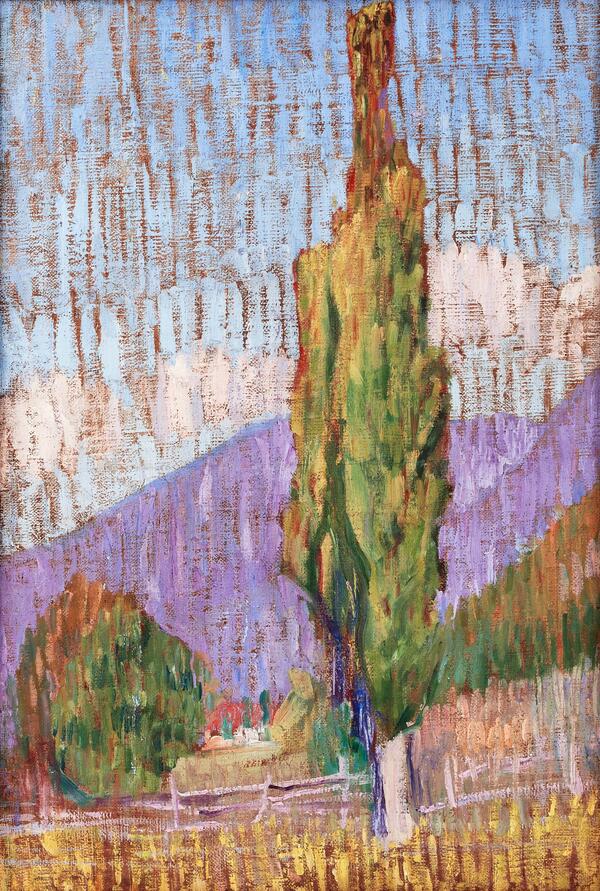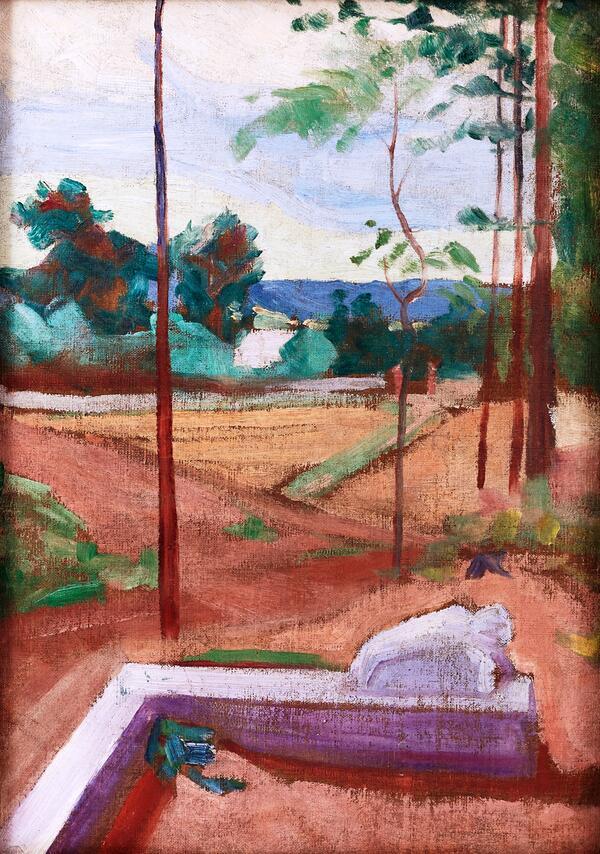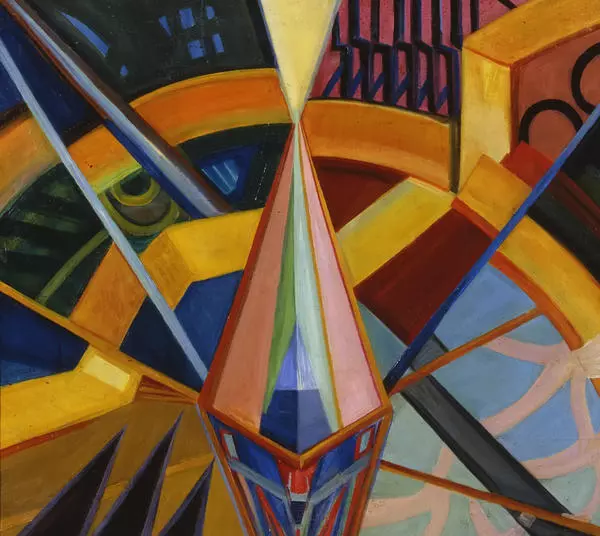Mikhail Vasilyevich Matyushin’s personal belongings contain the most common set of items an artist needs for outdoor painting from life — a portable paintbox and a small three-legged folding wooden stool.
Both items are hand-crafted. They were most likely made by the artist himself. At every stage of his career, Matyushin placed great importance on painting from life, be it the very beginning of his career, when he was looking for ways to reflect on canvas the beauty of color as observed in nature, or the later period, when he formulated his definition of non-objective art.
The wooden canes that belonged to Mikhail Matyushin were also handmade. One of them, with a simple floral pattern, is displayed in this exhibition. In pre-revolutionary Russia, canes not only provided support while walking but were also part of men’s attire. After 1917, Mikhail Matyushin and Vladimir Mayakovsky continued to walk around with a cane.
Personal belongings preserve the memory of a person, their habits and appearance. The artist and professor Matyushin was known to feel a resemblance of his soul to that of Don Quixote — he mentioned it when describing his self-portrait “Crystal”.
The recollections of Matyushin’s students help shed some light on his personal qualities. Nikolay Ivanovich Kostrov noted,